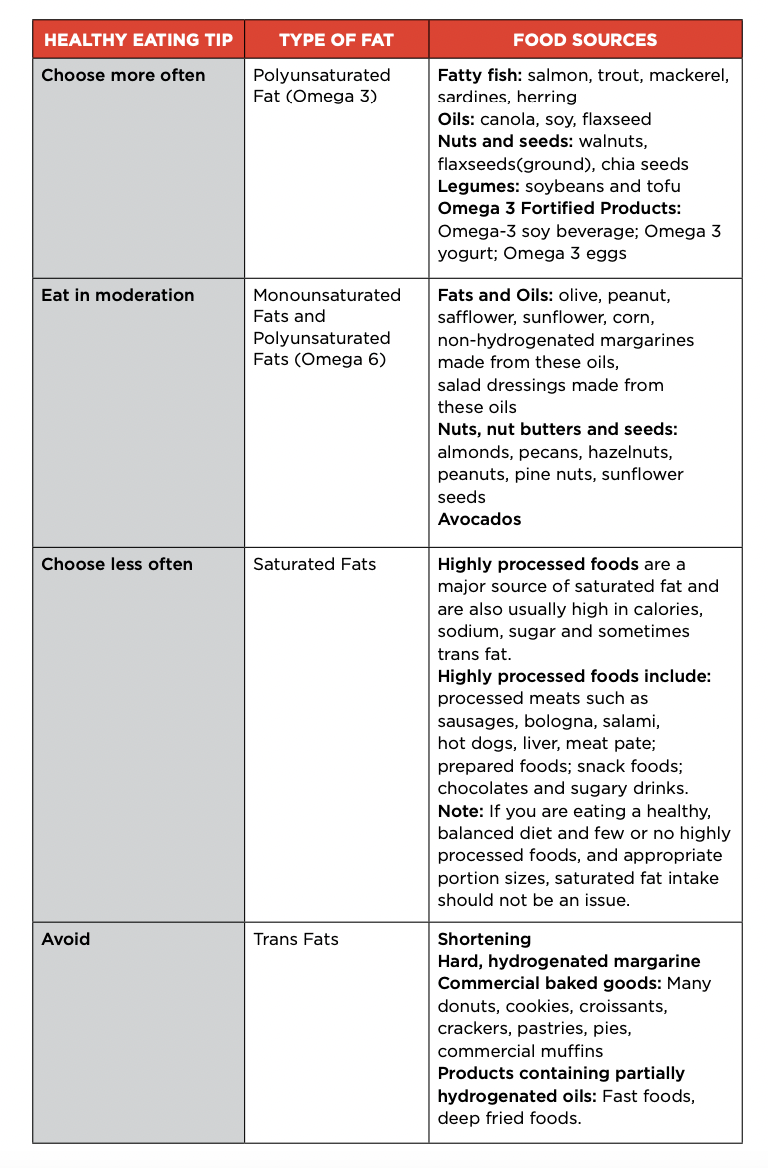High Cholesterol
1) Understand your test results.
HDL cholesterol (good cholesterol) – Good to have a high number
LDL cholesterol (bad cholesterol) – Good to have a low number
Non HDL cholesterol (total cholesterol – HDL cholesterol) – Good to have a low number
Triglycerides – High reading may be tracked over time
2) Track your cholesterol levels.
You may track your levels using this grid. This can help you notice any changes over time.
3) Eat a healthy and balanced diet.
Use this chart to help you make better choices in your diet. If your blood cholesterol level is high, your physician or dietitian may recommend restricting your intake of foods high in dietary cholesterol such as egg yolks, organ meats, full-fat dairy products and processed meats.
4) Cook and eat more meals at home.
Develop and share skills in food preparation and cooking with your family.
Buy a healthy cookbook or use the healthy recipes at heartandstroke.ca/recipes. Select the top ten recipes your family loves and get everyone involved in the meal preparation.
Reduce the amount of sugar, salt and solid fats used in your favorite recipes.
5) Make eating out a special occasion. Eating out usually results in you consuming large amounts of food, more fat, salt, and sugar.
Try to limit the number of times you eat in a restaurant per month.
When you do eat out, choose restaurants that serve freshly made dishes using whole and minimally processed foods and provide nutrition information.
Share meals or ask for half the meal to be packed up to eat the next day.
6) Achieve and maintain a healthy weight.
Being overweight or obese increases your LDL or bad cholesterol level, lowers your HDL or good cholesterol level and raises your triglyceride levels. Reducing your weight is a positive way to reduce your blood cholesterol levels. Help is available at heartandstroke.ca/hwplan.
7) Get physically active.
Being physically active will help improve your cholesterol levels and general heart health. Aim for 150 minutes a week. That is less than 25 minutes per day! Choose activities you like. Cycling, swimming, gardening and walking are great ways to keep active.
8) Be smoke-free.
Smoking is a risk factor for heart disease. It reduces the level of your HDL ‘good’ cholesterol. Once you quit, within a few weeks your HDL levels will start to rise.
9) Know about medication to lower cholesterol. If your prescription medication is not on the list, ask your pharmacist or healthcare provider for more information.



